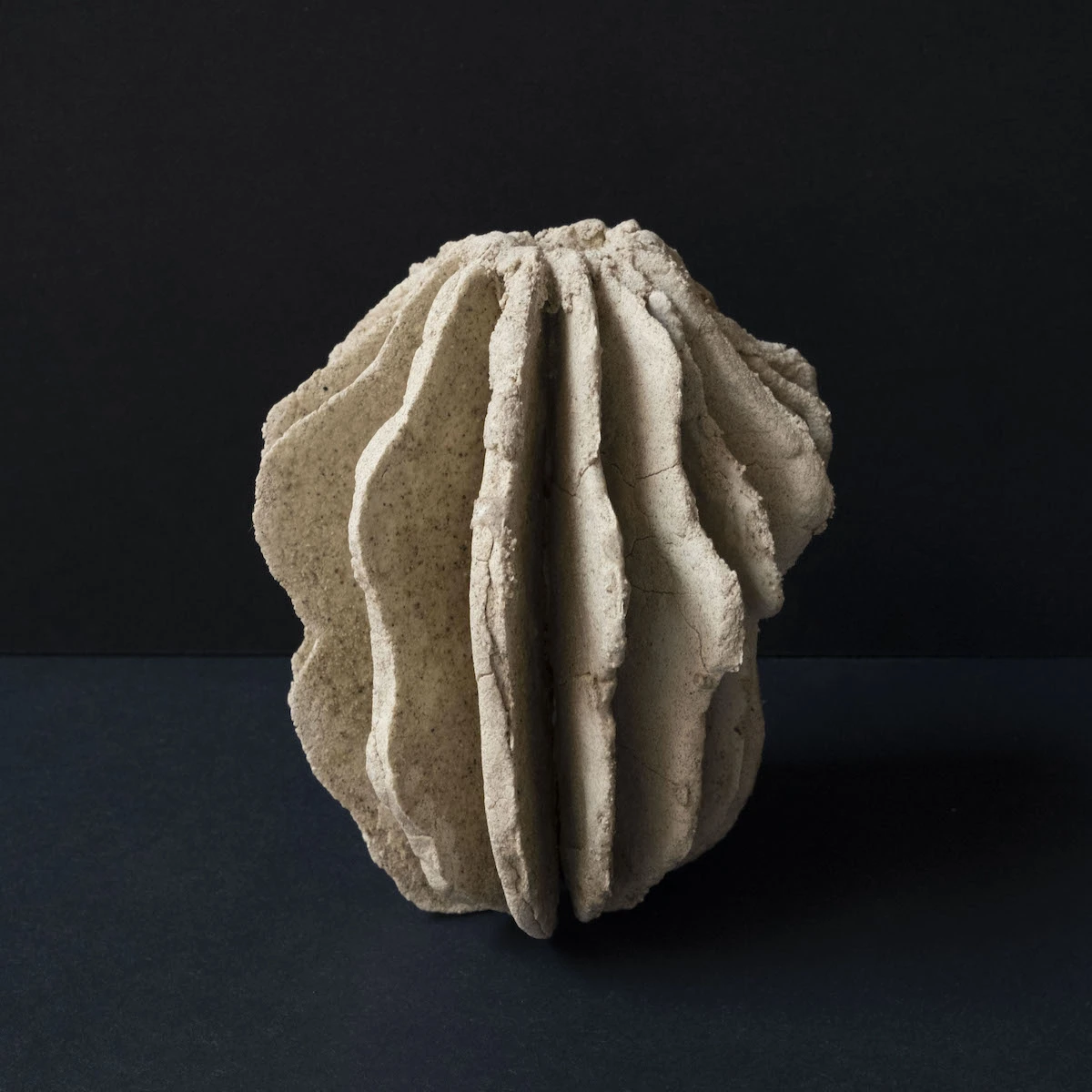
Calcium carbonate / geopolymer
material experiment
Neo Stone Age
2021-Present
2023 The Index Project - Nominees
2022 START PRIZE, Ars Electronica - Nomination
2022 Guiltlessplastic by Rosanna Orlandi - Finalist
2022 Creative Industries Funds NL - starting grant
2021 KABK MID department Award - Nomination
Introduction
Make things like Earth
The concrete industry is at the root of several environmental issues. Can humans develop new manufacturing methods with industrial wastes? From Erco Lai's practice, he creates Neostones from powder of marble/limestone, lime pellets, sand and slag with the method named ‘geopolymerization’.

Chapter 1
Domesticating Limestone
Calcium carbonate is a common material widely spread on Earth;
it is dissolved in rivers and lakes; we can find it in skeletons and shells;
it forms "tufa" and "stalagmites"; it builds up caves and mountains and it is also in our kettles and water pipes.
It has various applications in our life in agriculture, food industry, glass industry and cement production.
However, the main resource of limestone nowadays is mostly from quarries, we extract from the land and
create messy "tailings" in the landscape. What kind of alternatives could we find in our surroundings?
One of the forms of calcium carbonate is "limescale", a matter we produce in our water softening processes yet
is often overlooked and discarded. In his research, he attempts to reintroduce limescale as a promising material
to build and live with. Erco Lai researches how to reconfigure limescale and focus on creating "geopolymers", a chemical
process to bind inorganic materials together. Based on the material research, Erco Lai speculates what a "neo stone age"
would look like, and how this harvesting and production method could be integrated into the city, and change both
our interiors and exteriors. Can we become Earth dwellers in this domesticated landscape?
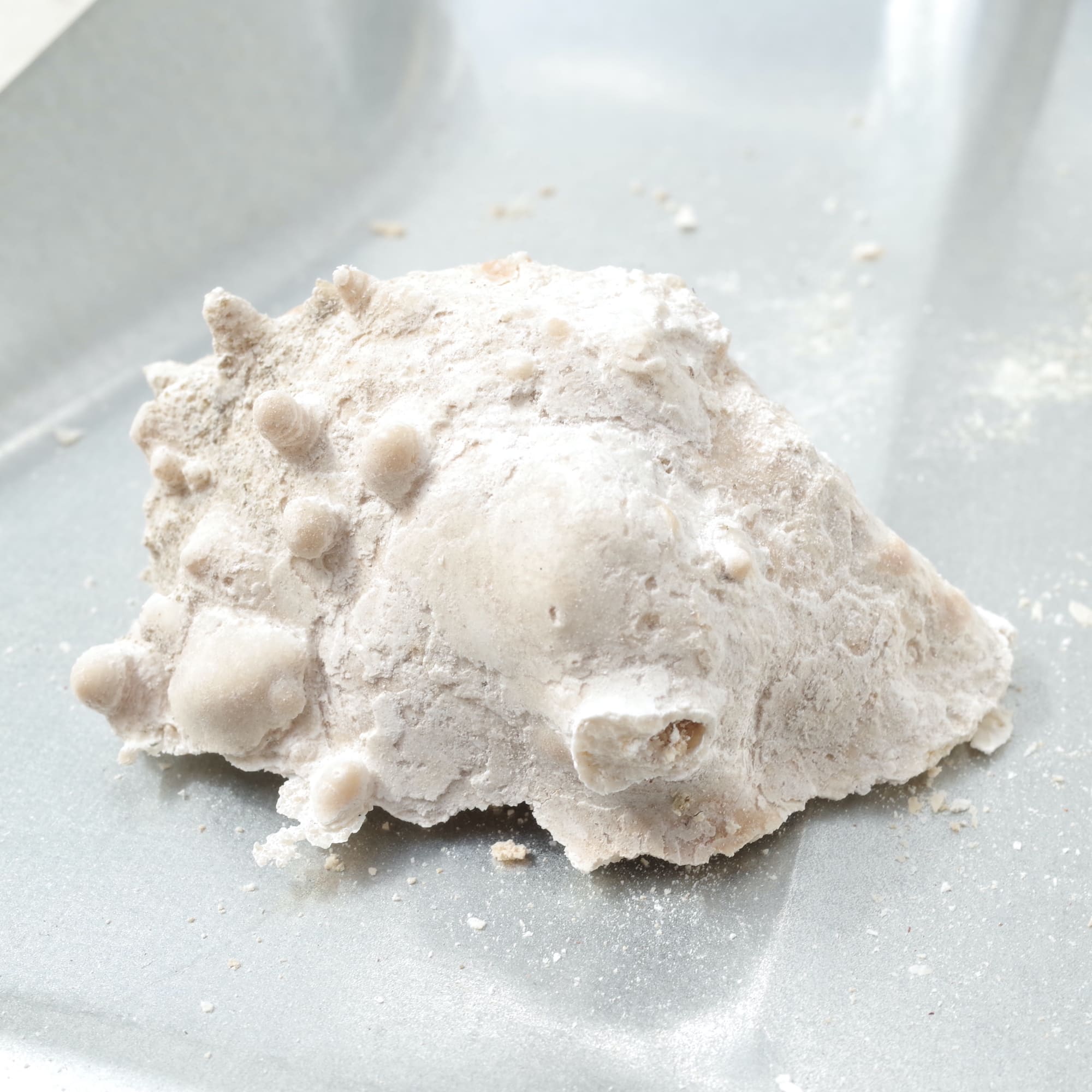
Limescale
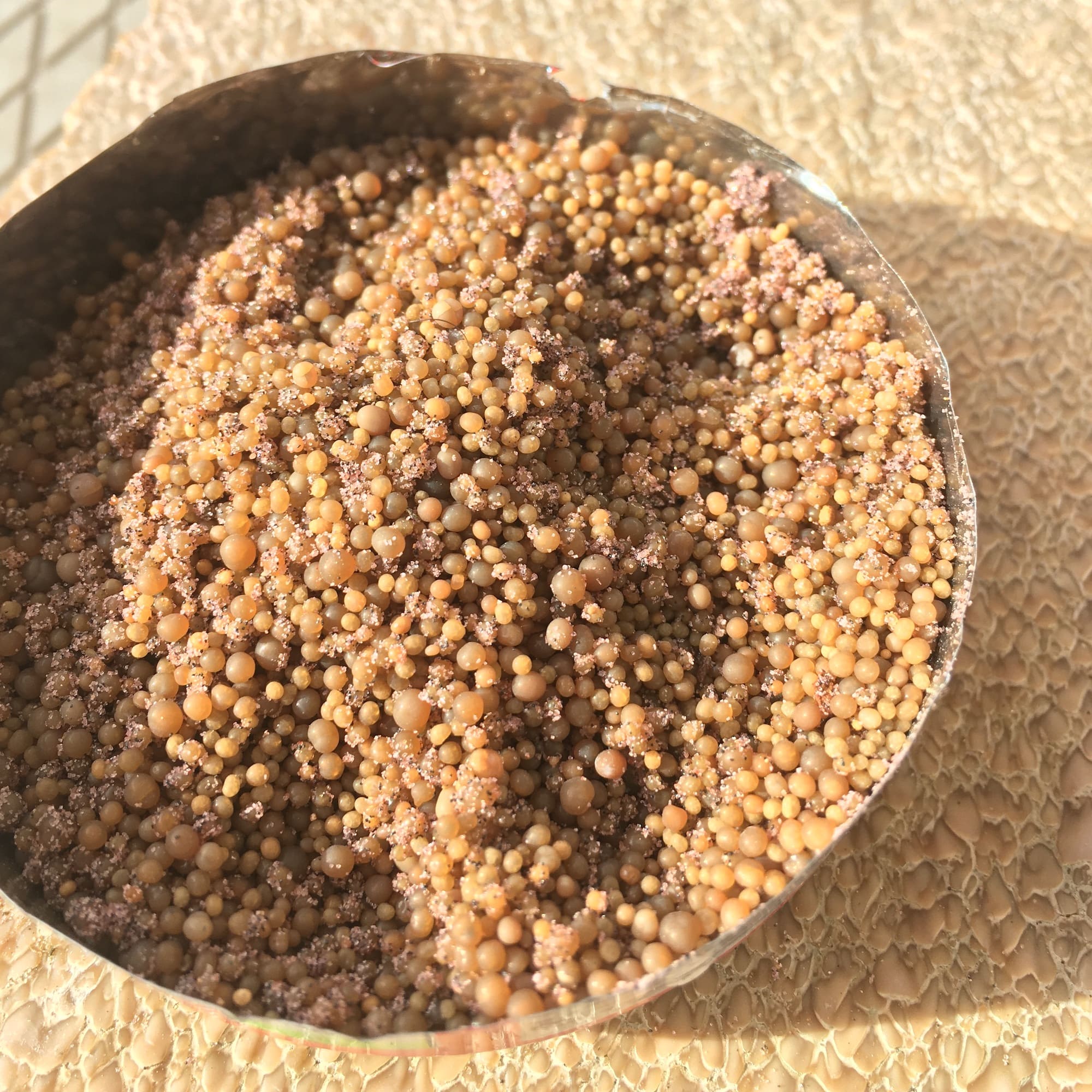
Lime pellets
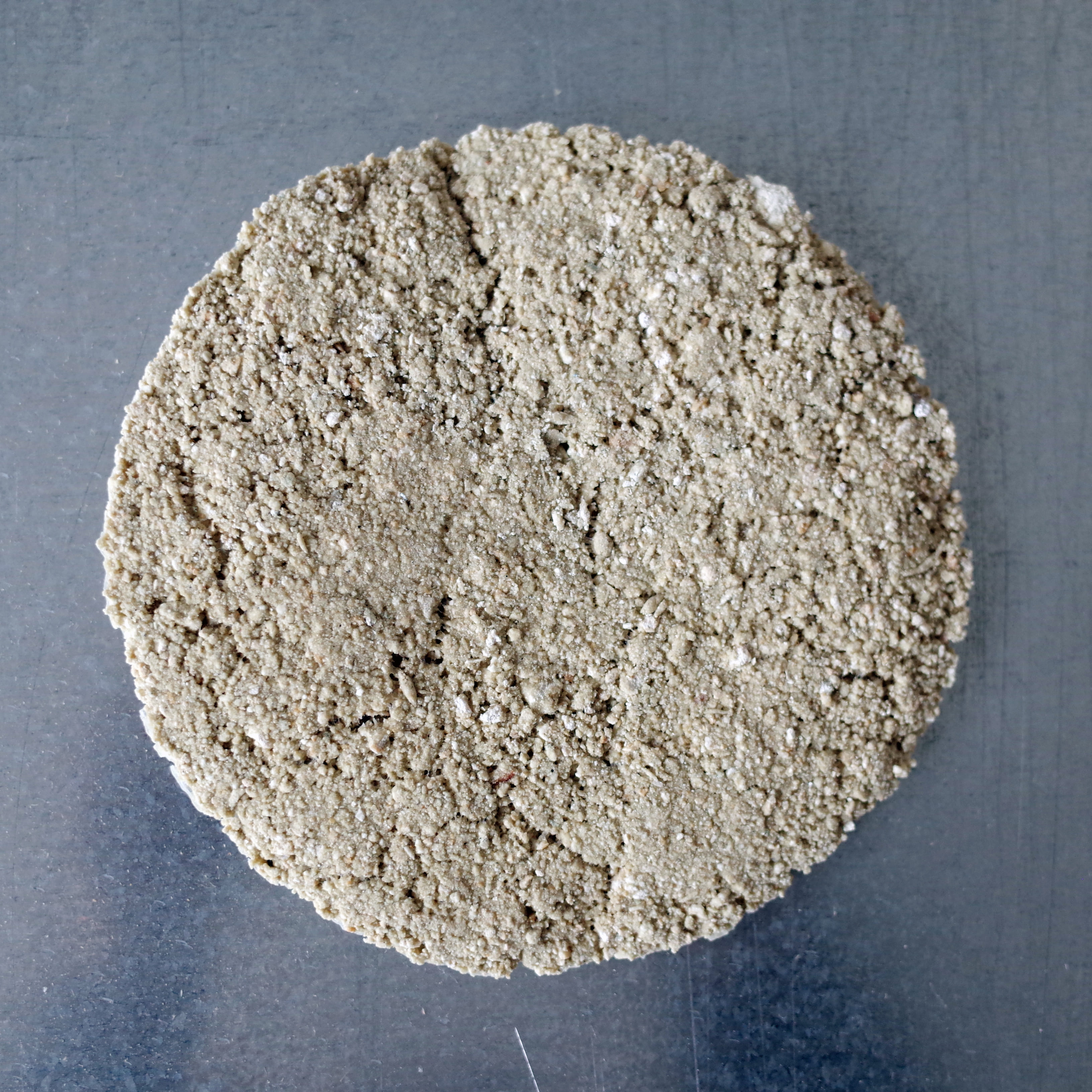
Geopolymer
About material
Geopolymer
Geopolymerization is the process of polymerizing silica and alumina containing minerals using alkali solvents. Discovered (or rediscovered) by Joseph Davidovits in France, geopolymer cements are likely similar to materials used in antiquity. Although cements are the most common application of geopolymerization, a range of refractory and structural products have been produced. The products of geopolymerization are called poly-silicates. (Open Source Ecology)
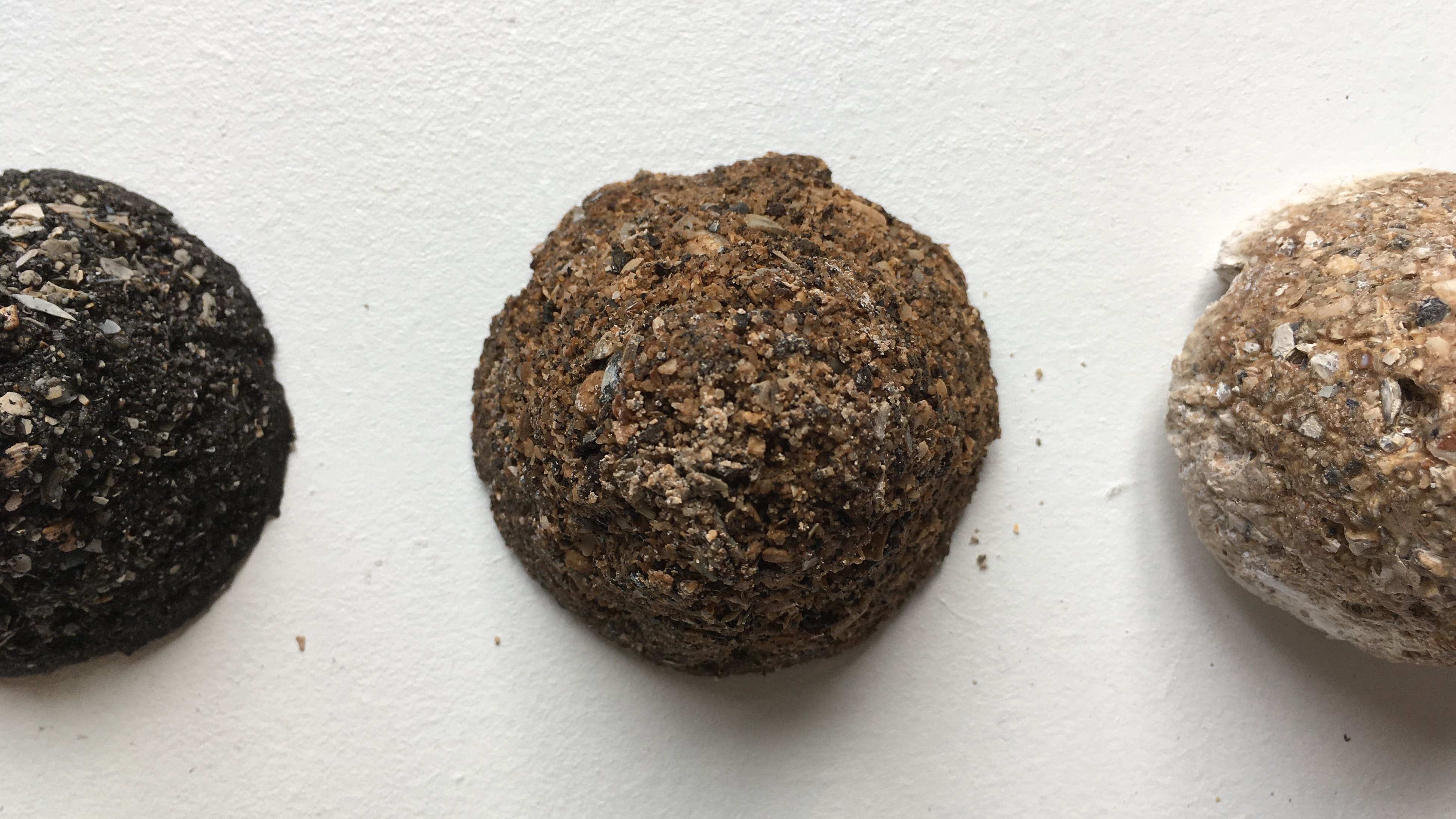
Chapter 1.1
ObservationChapter 1.2
Harvesting & makingChapter 1.3
A trip to Neostone TownChapter 1.4
Speculative urban plan
Chapter 2
Synthesizing Neostone
The concrete industry is at the root of several environmental issues.
Can humans develop new manufacturing methods using 'geopolymerization' with industrial wastes?
With this project, Erco is working on both the imagination and realization of alternative building materials,
using ‘unwanted minerals’ to close material flows within our urban ecosystem.
From geopolymerization, He creates 'Neostones' from powder of marble, lime pellets, sand and slag.
The Neostone raises awareness from the perspective of the material, by learning from the Earth,
by blurring the boundary between earth-made and human-made, by mimicking geo-processes and translates
this into new manufacturing mechanisms.
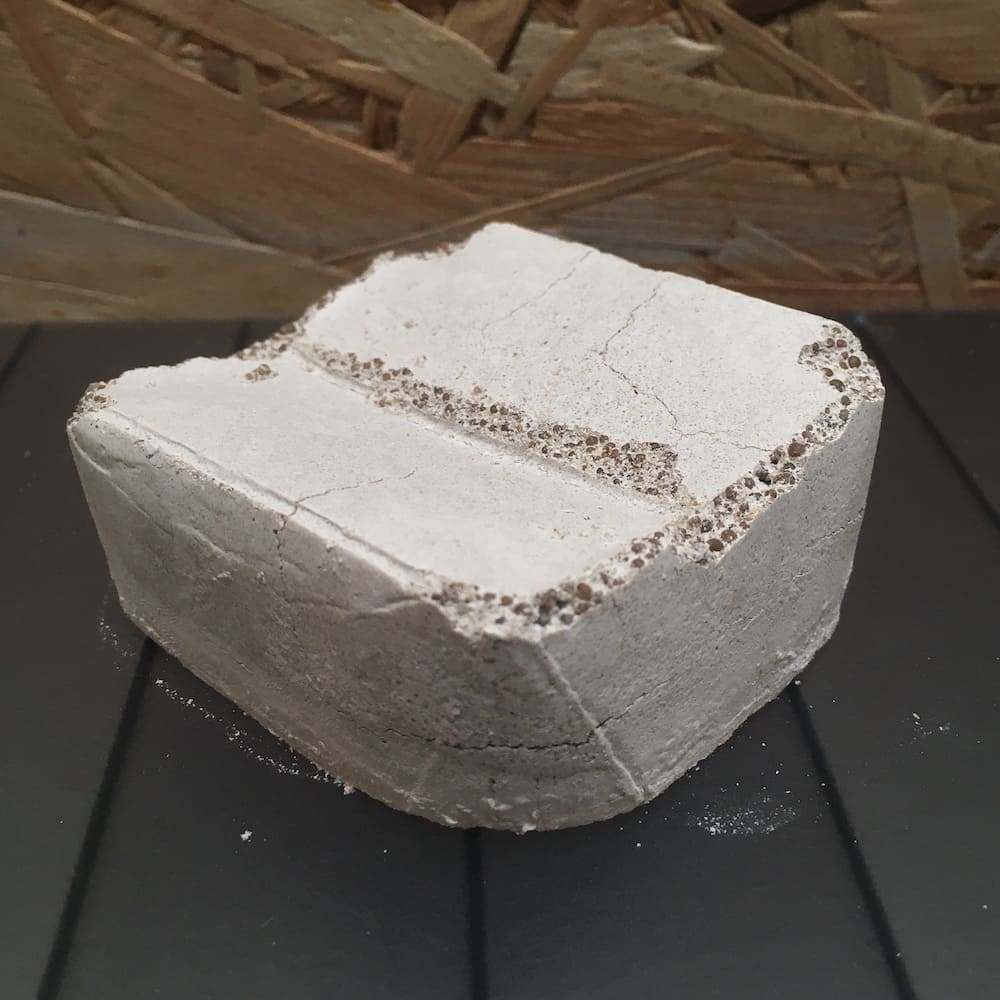
Limestone
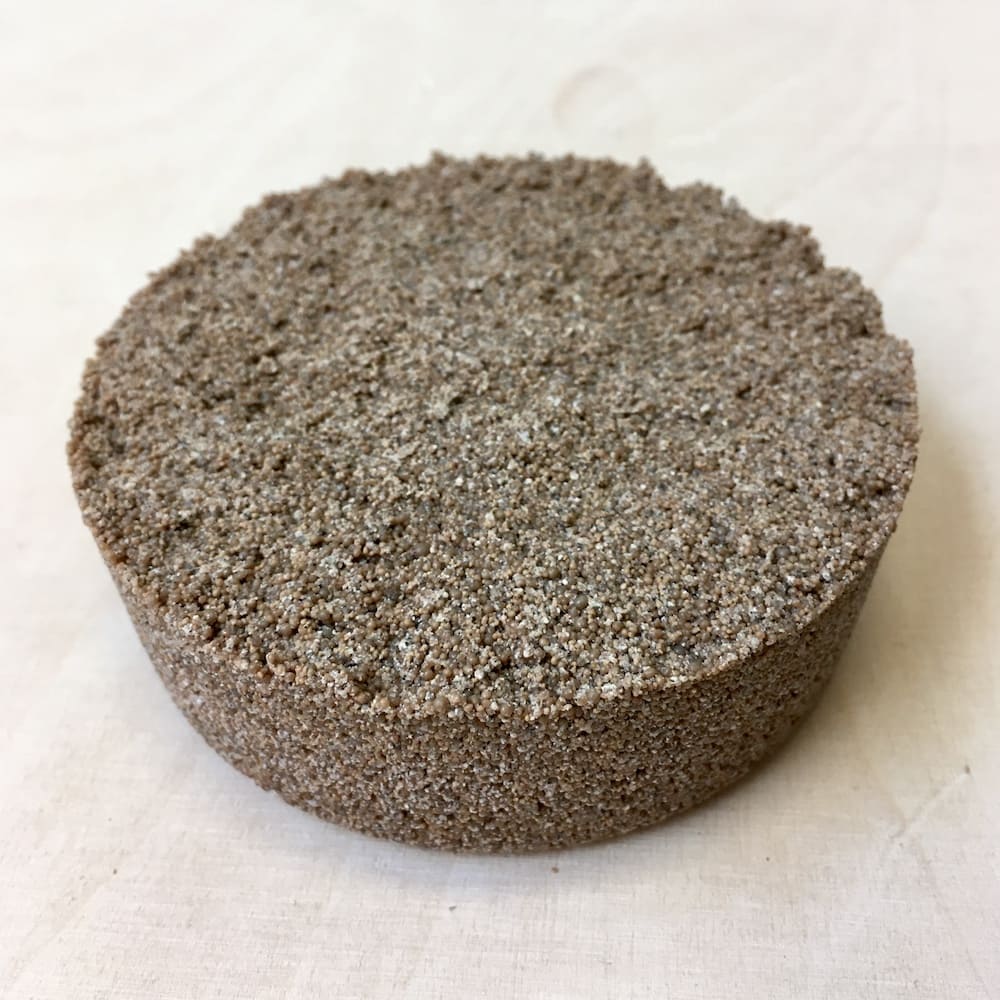
Sand
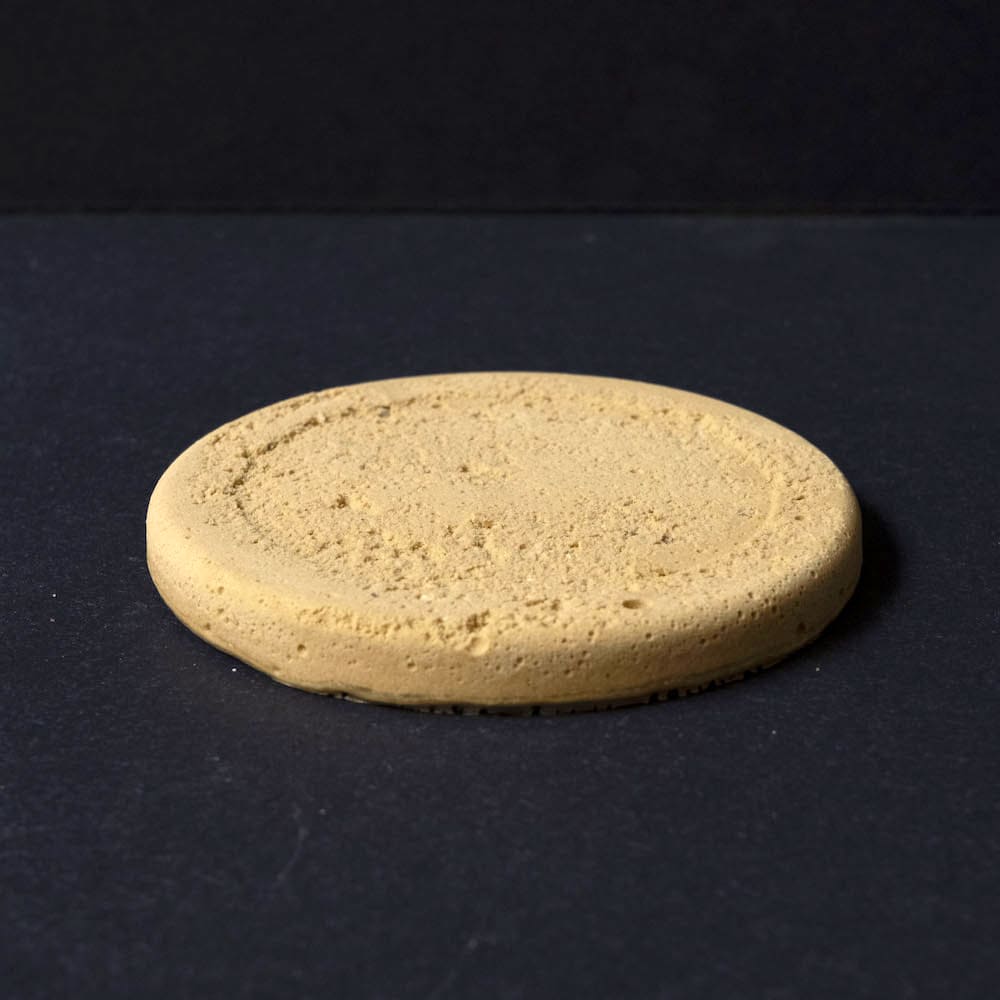
Marlstone
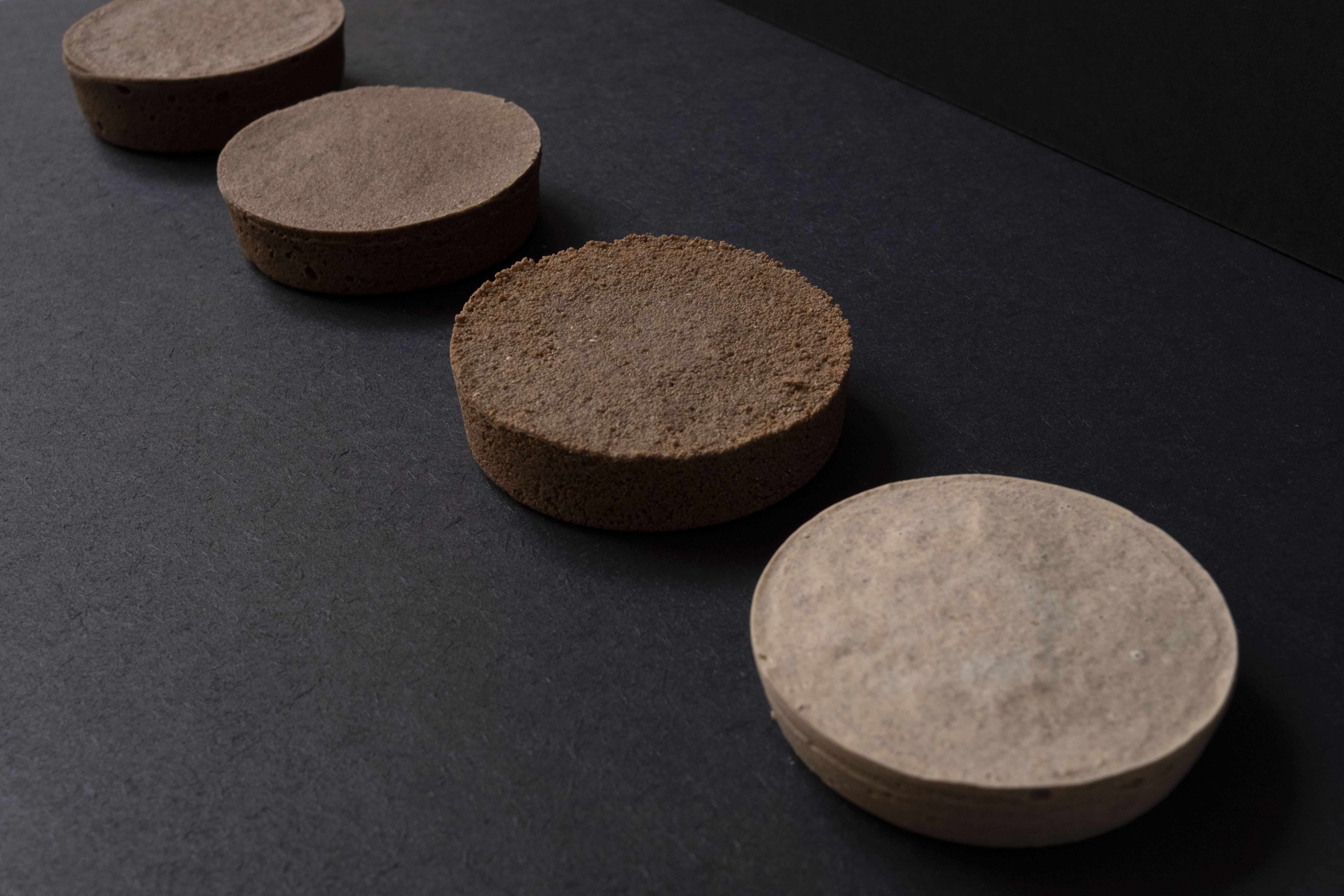
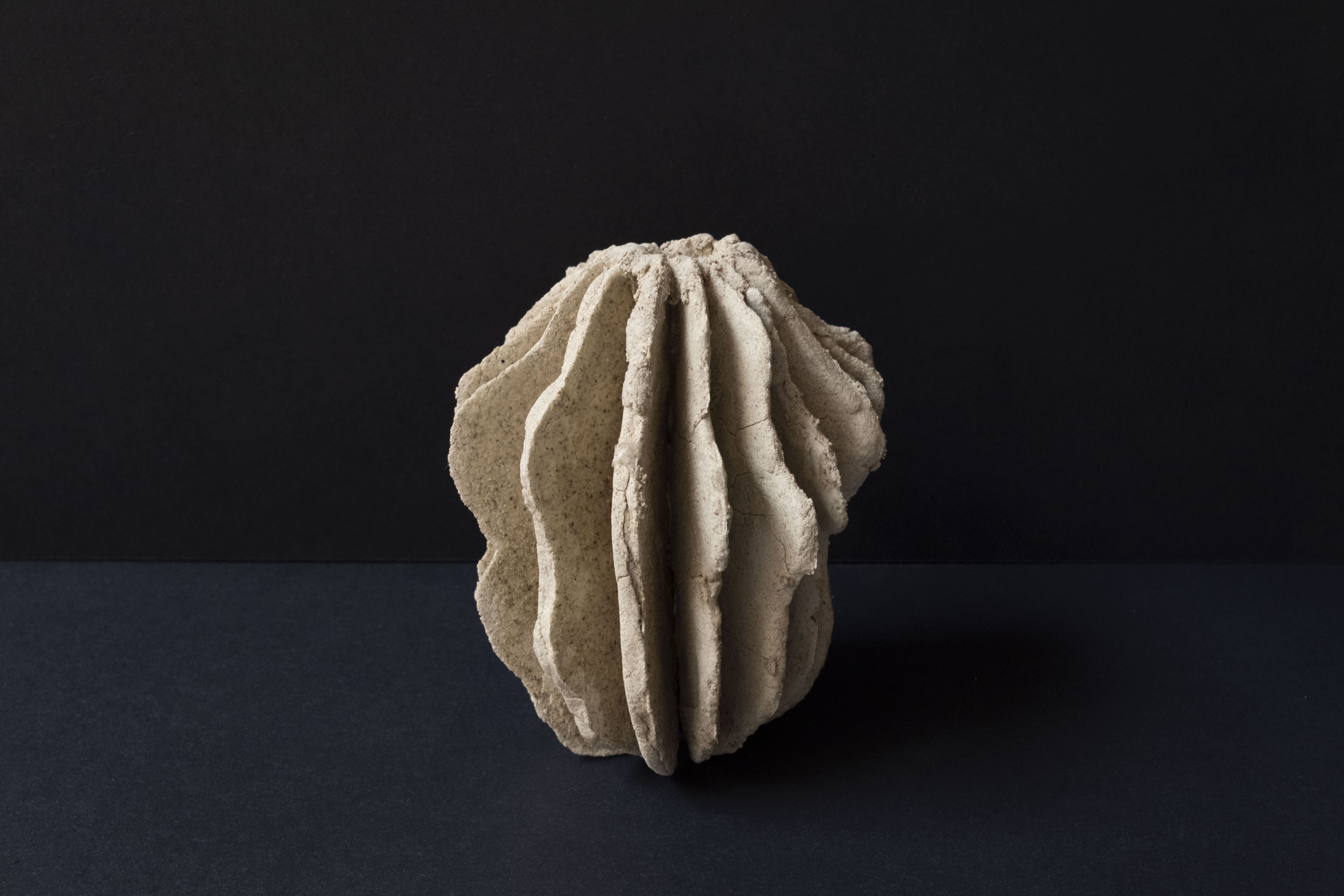
Form follows Gaia
Neo Scholar's Stone
In Asia, there is a culture of harvesting natural-formed stones from lakes or caves and bringing them into gardens.
In his practice, Erco Lai uses some real stones as references and turns them into digital models first.
With the plan exported digitally, he starts to make the sculpture by his own hands.
The collection is attempting to blur the boundary between natural forms and man-made forms.
Moreover, it shows a possibility of reusing artificial wastes instead of stealing natural resources continuously.
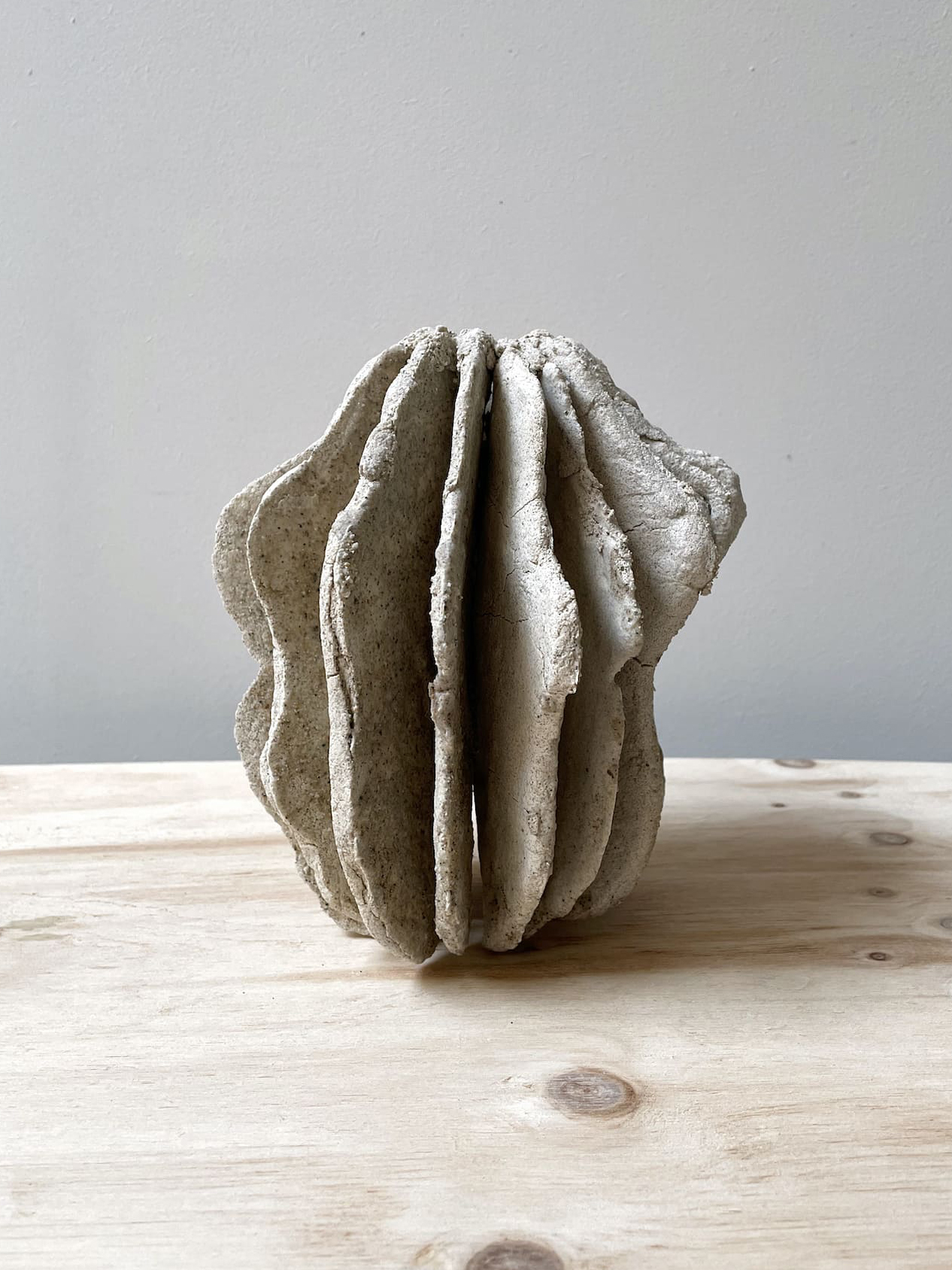
#001
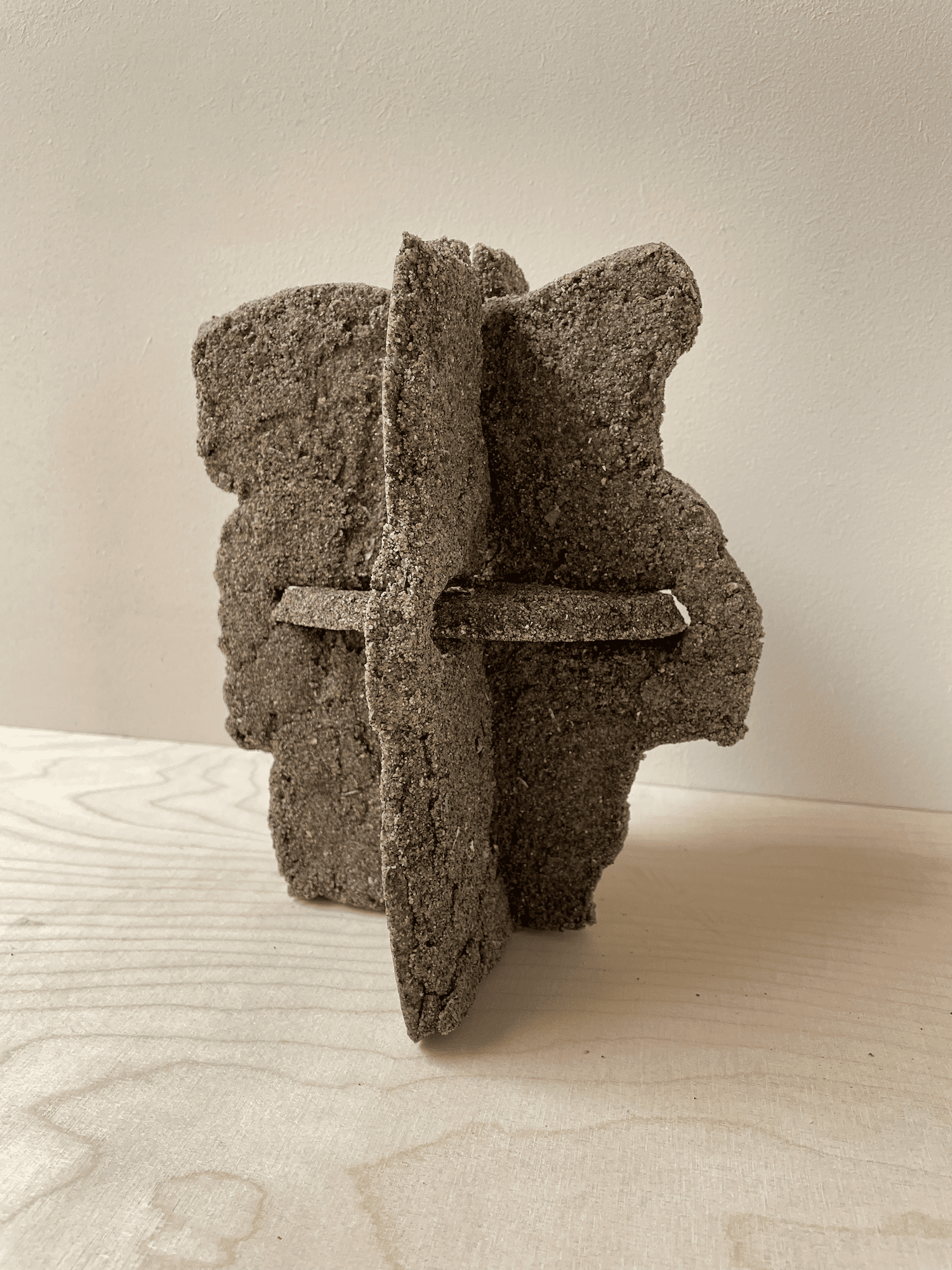
#002
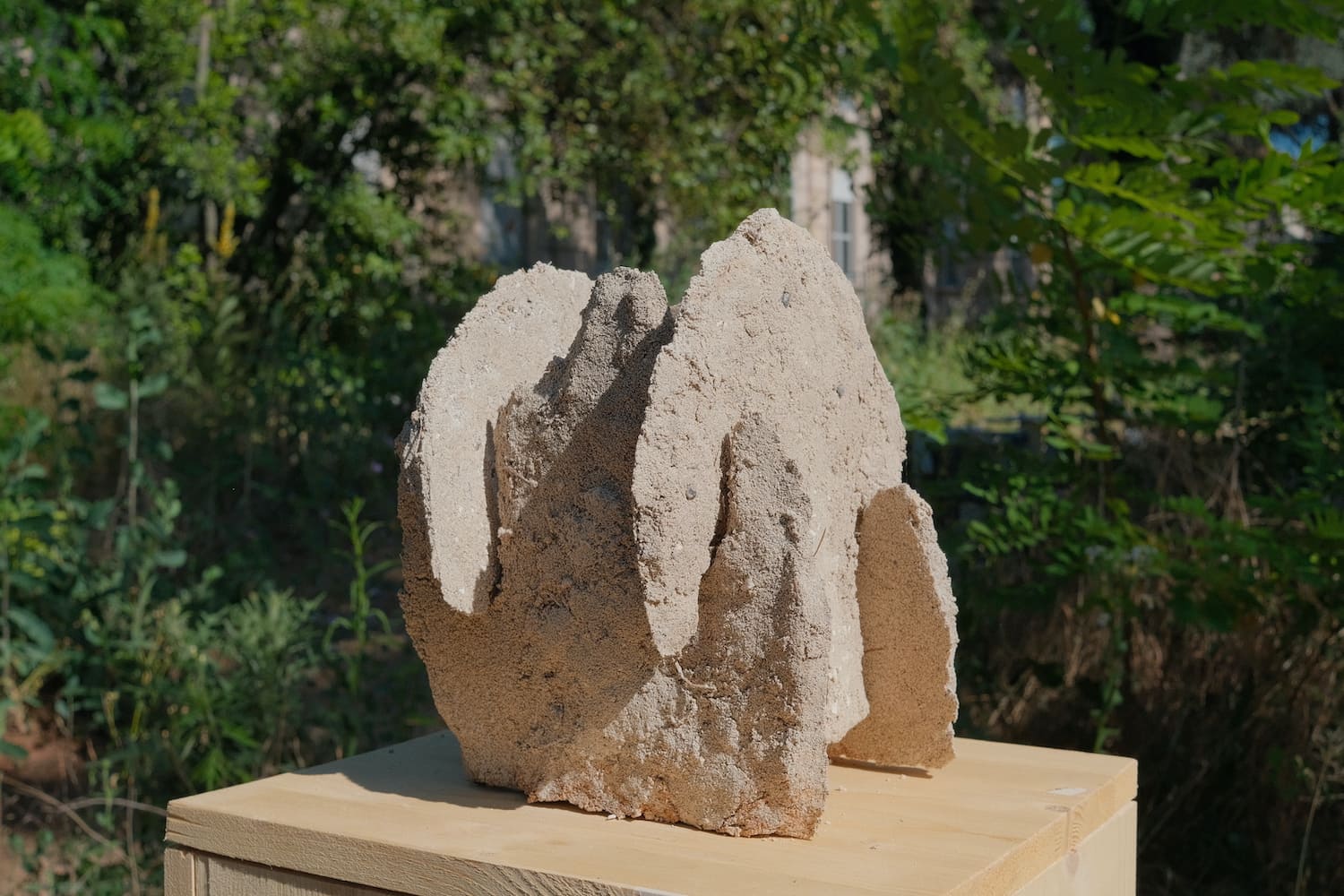
#003
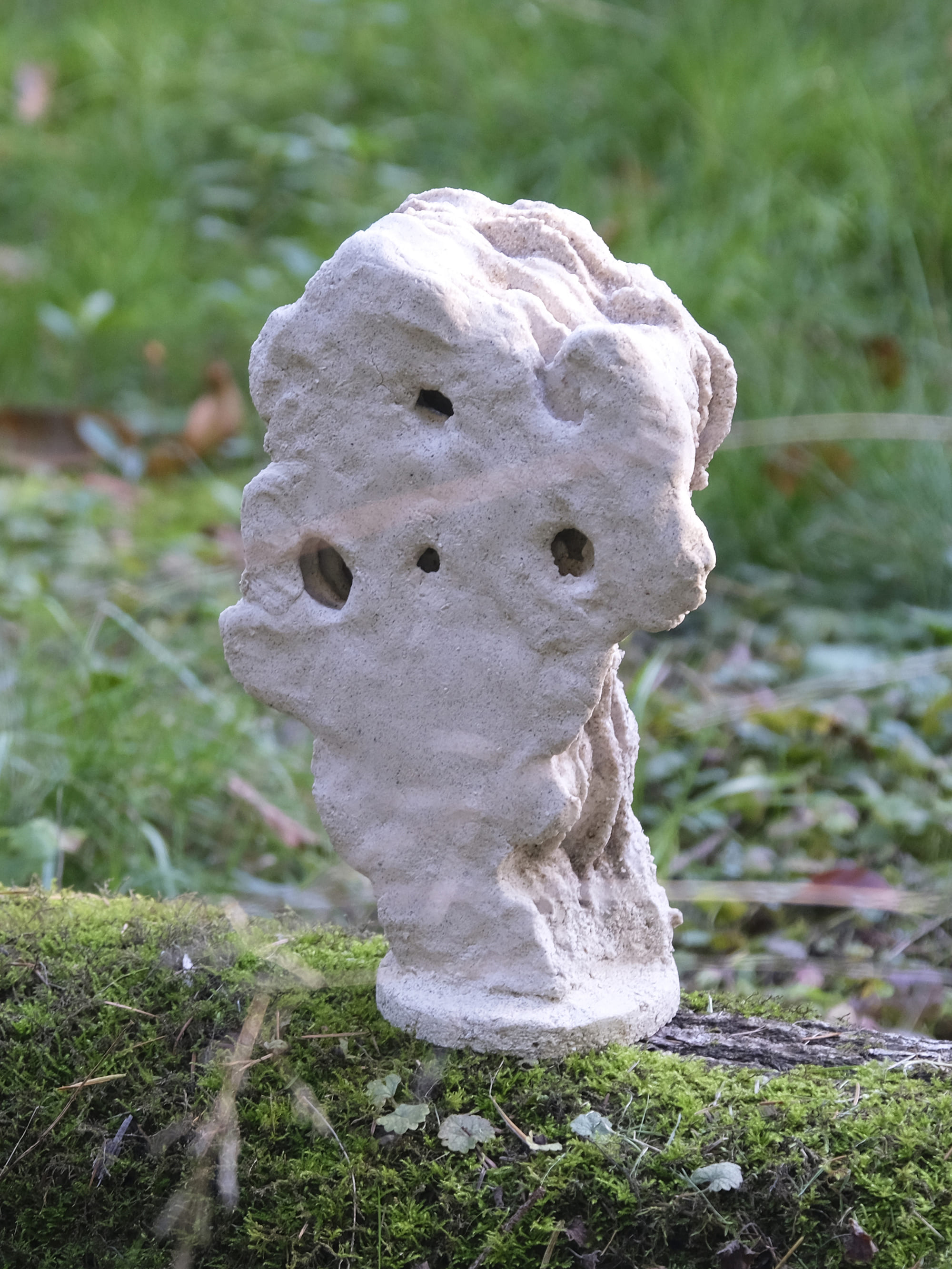
#004
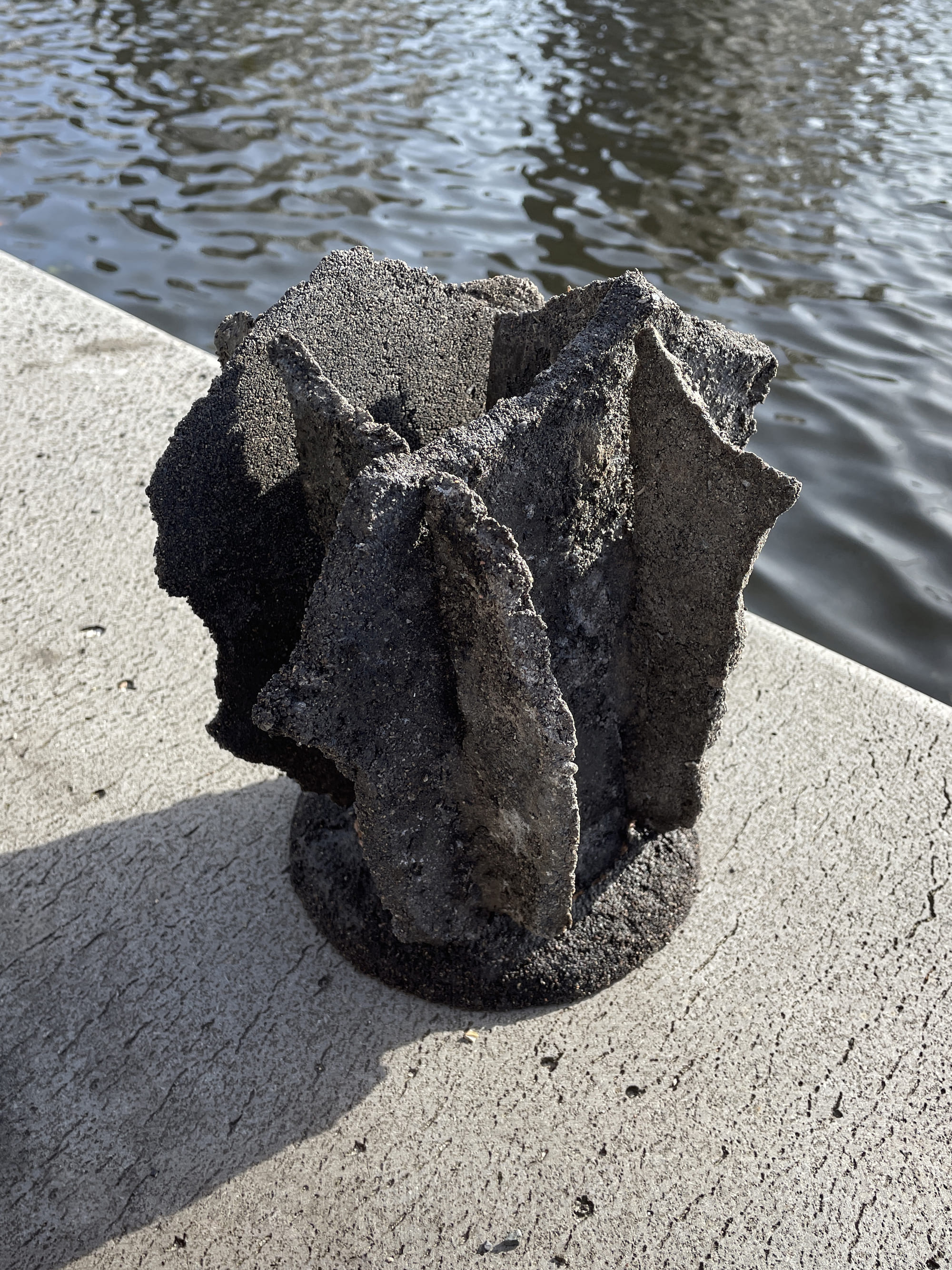
#005
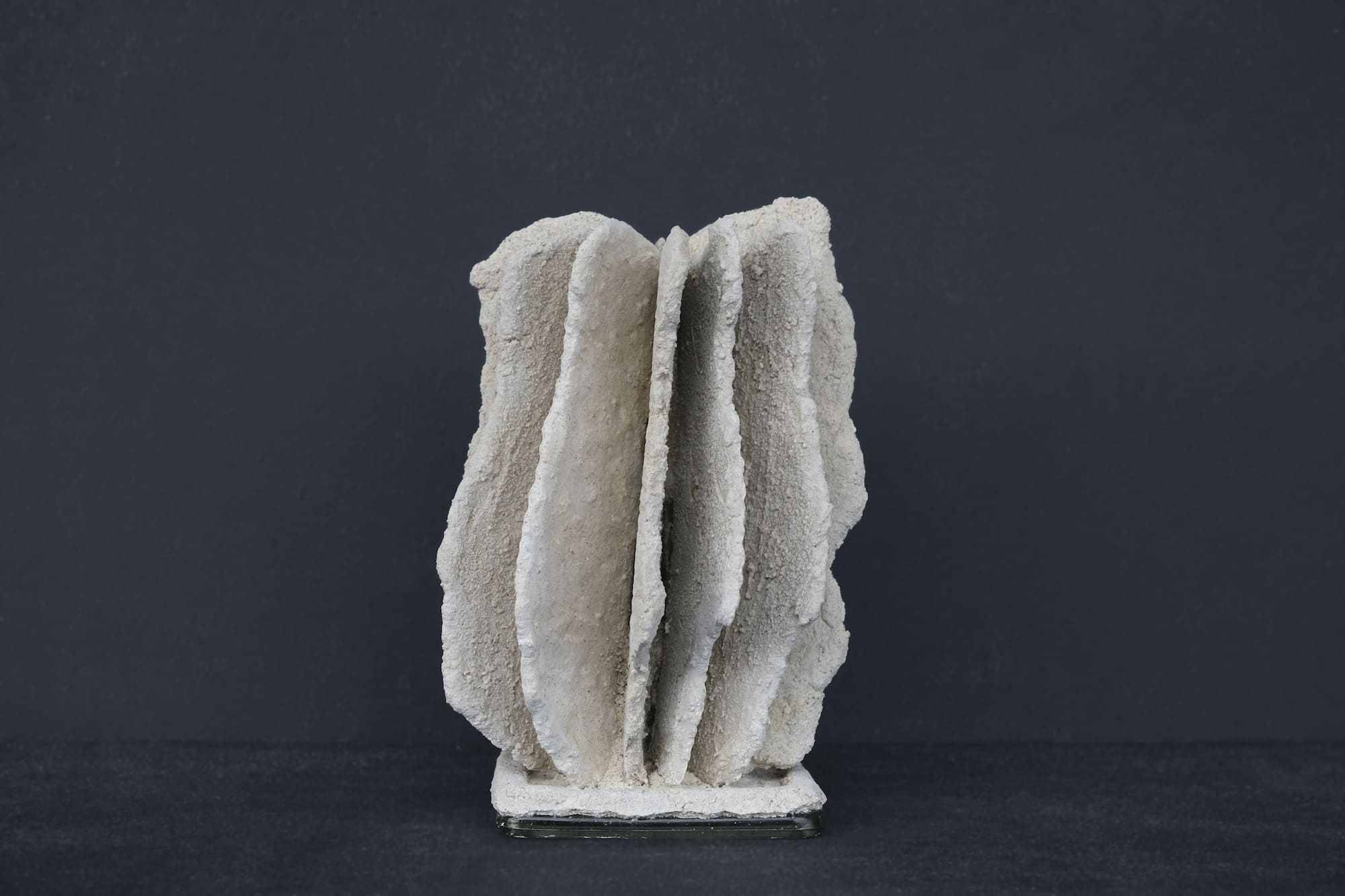
#006
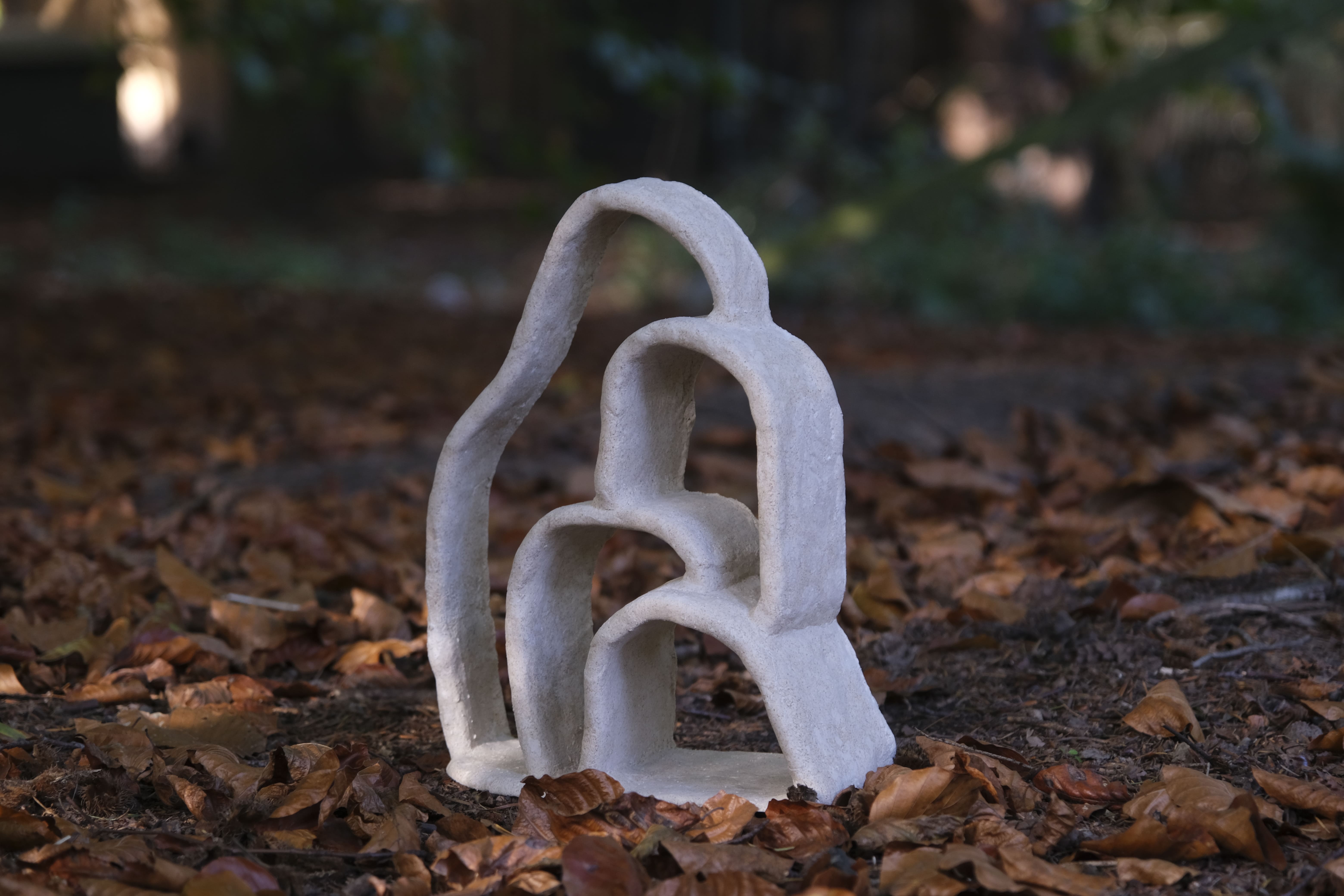
#007
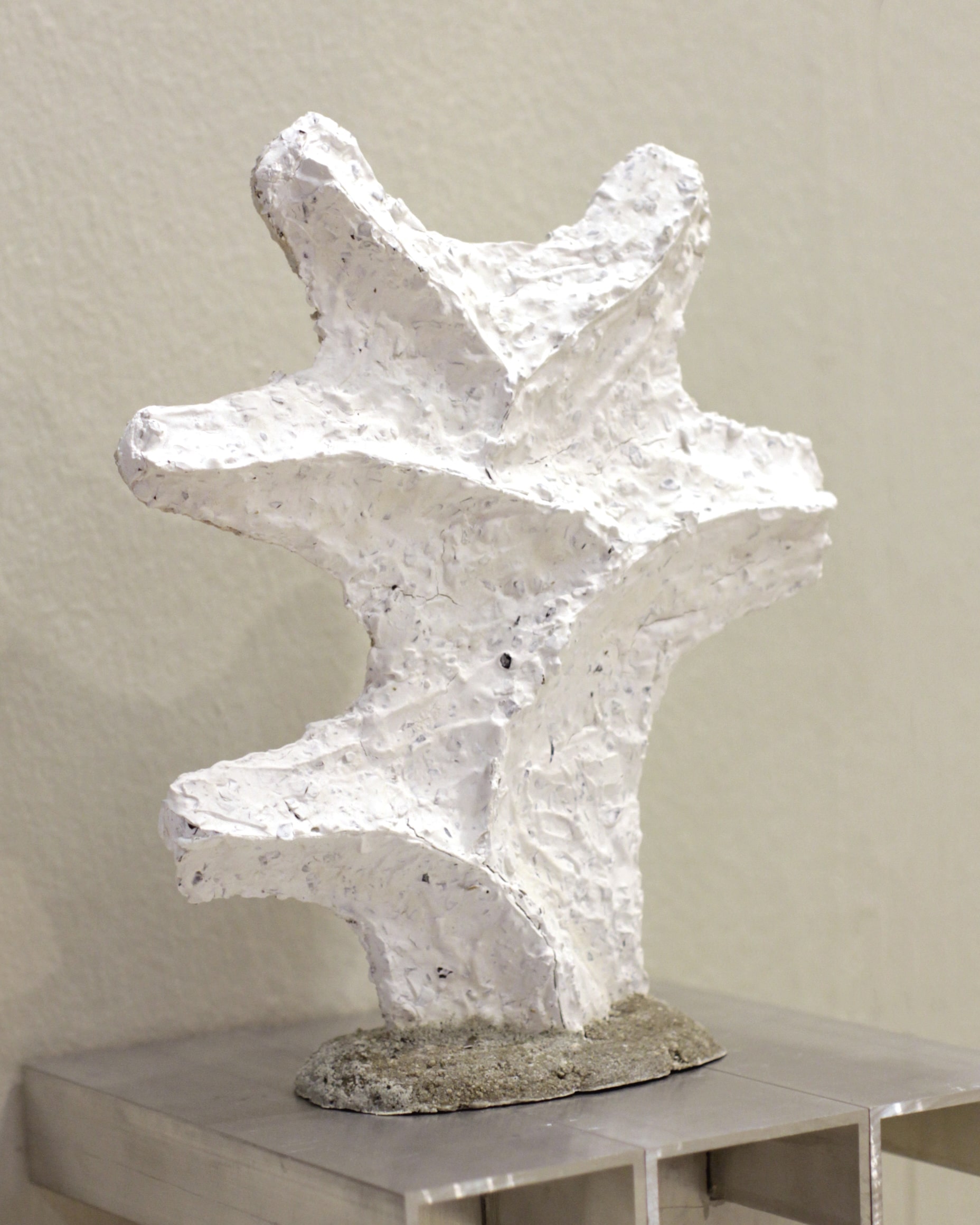
#008

#009
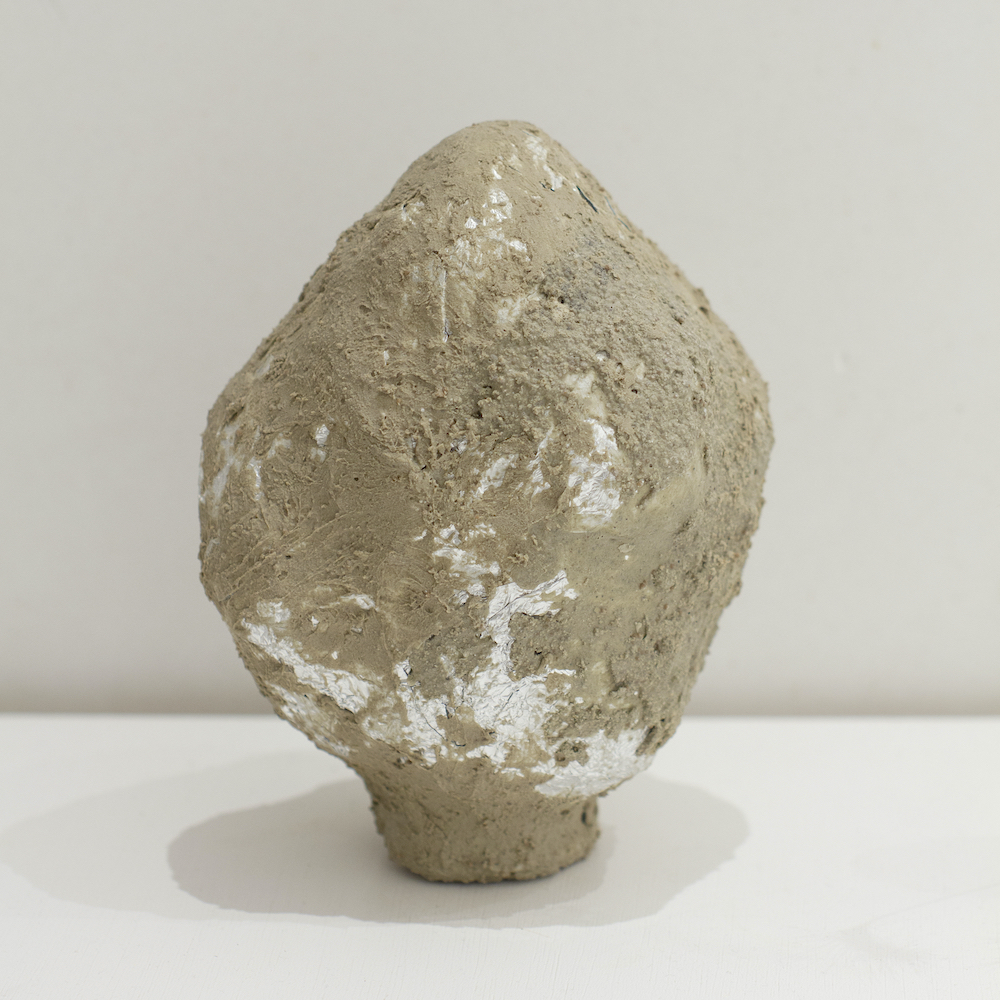
#010

#011
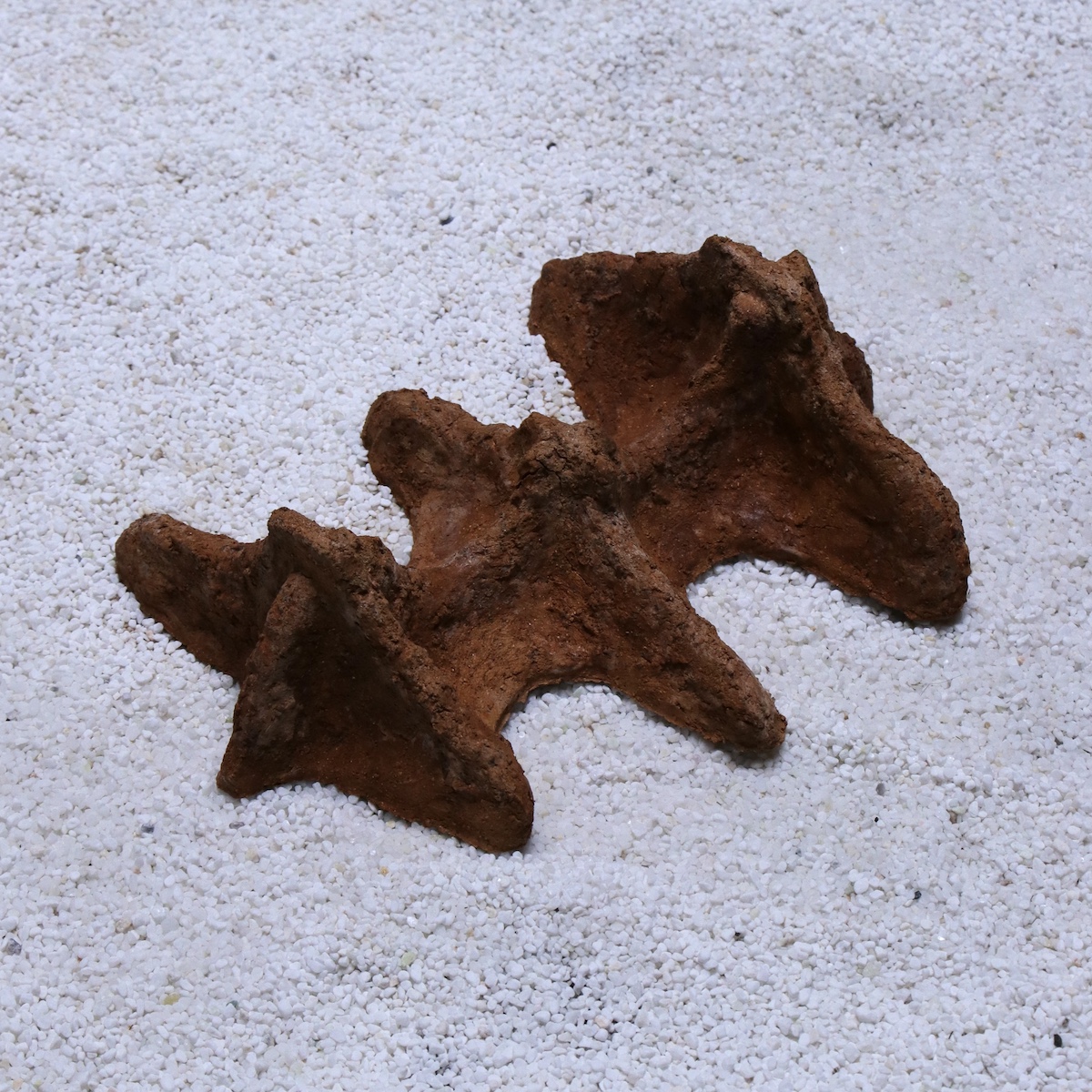
#012
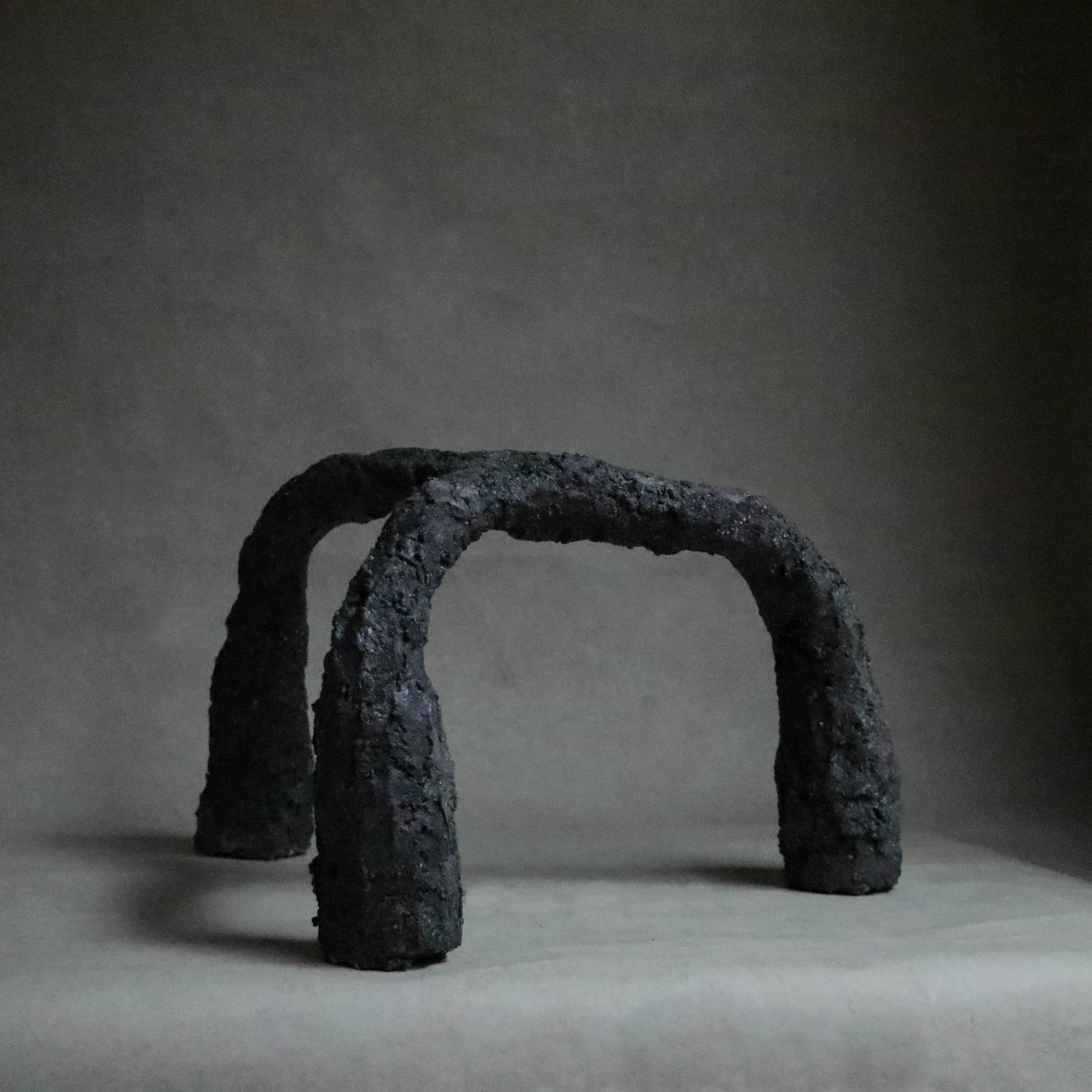
#013
Making process
Experiments
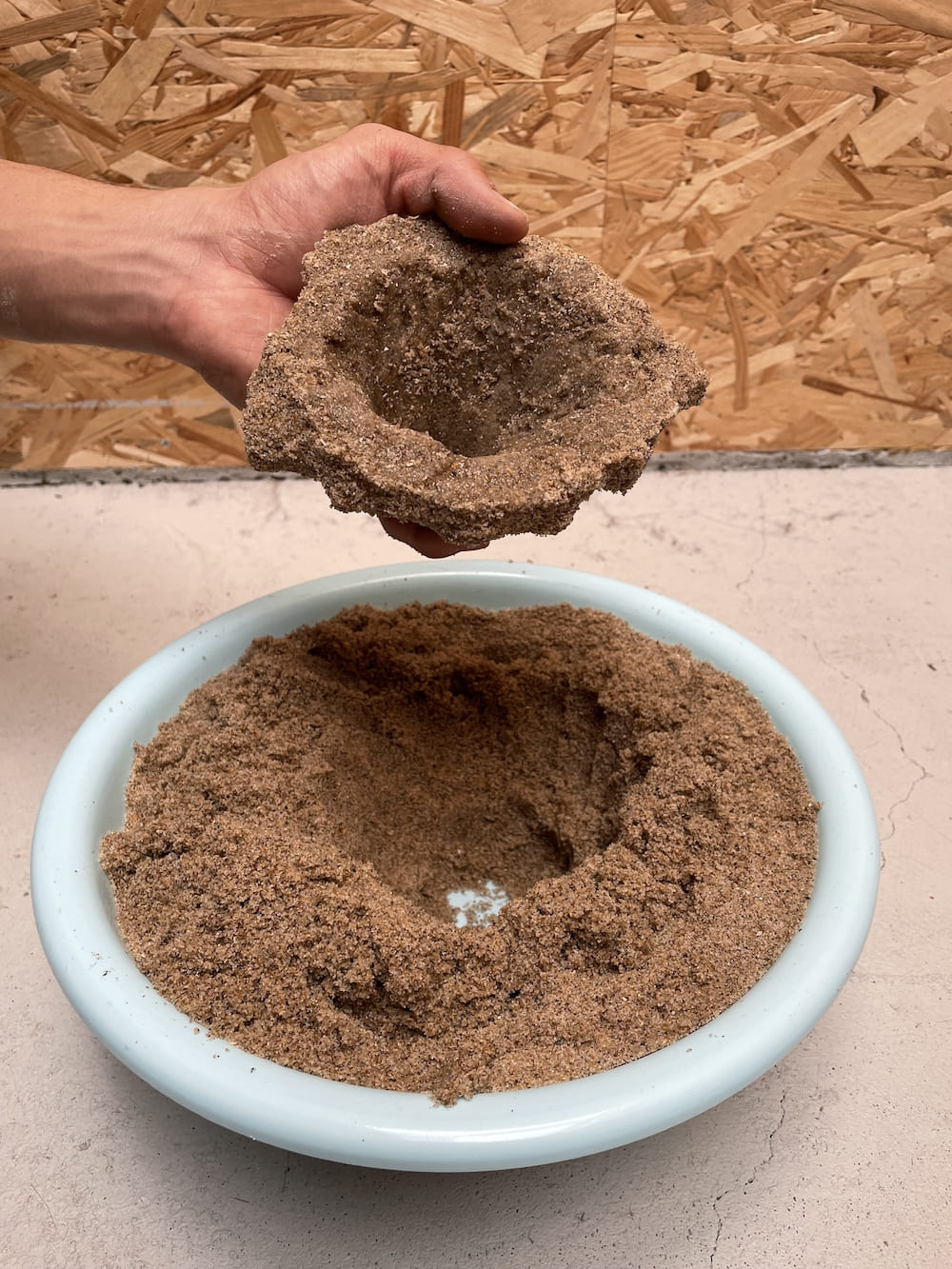
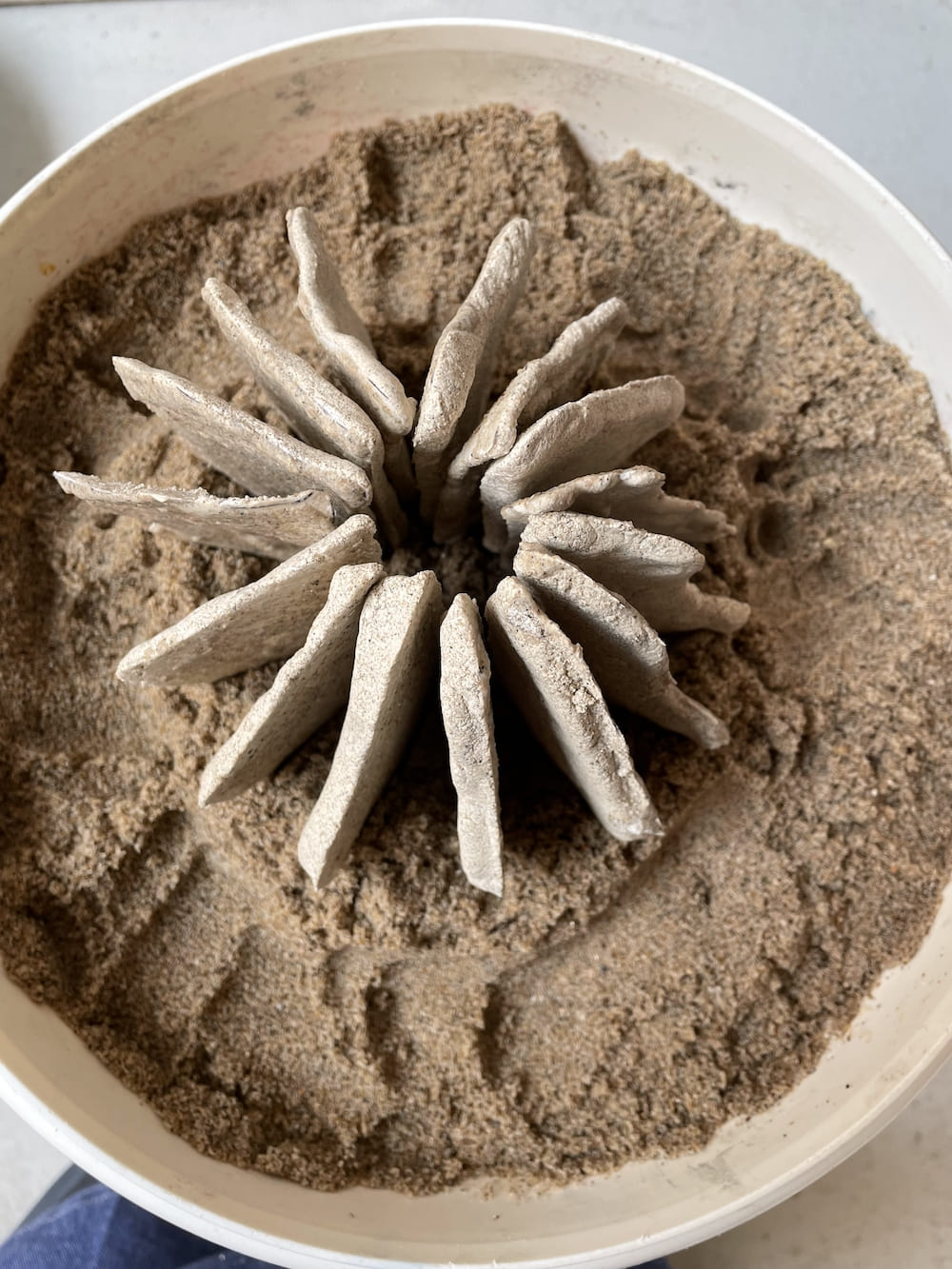
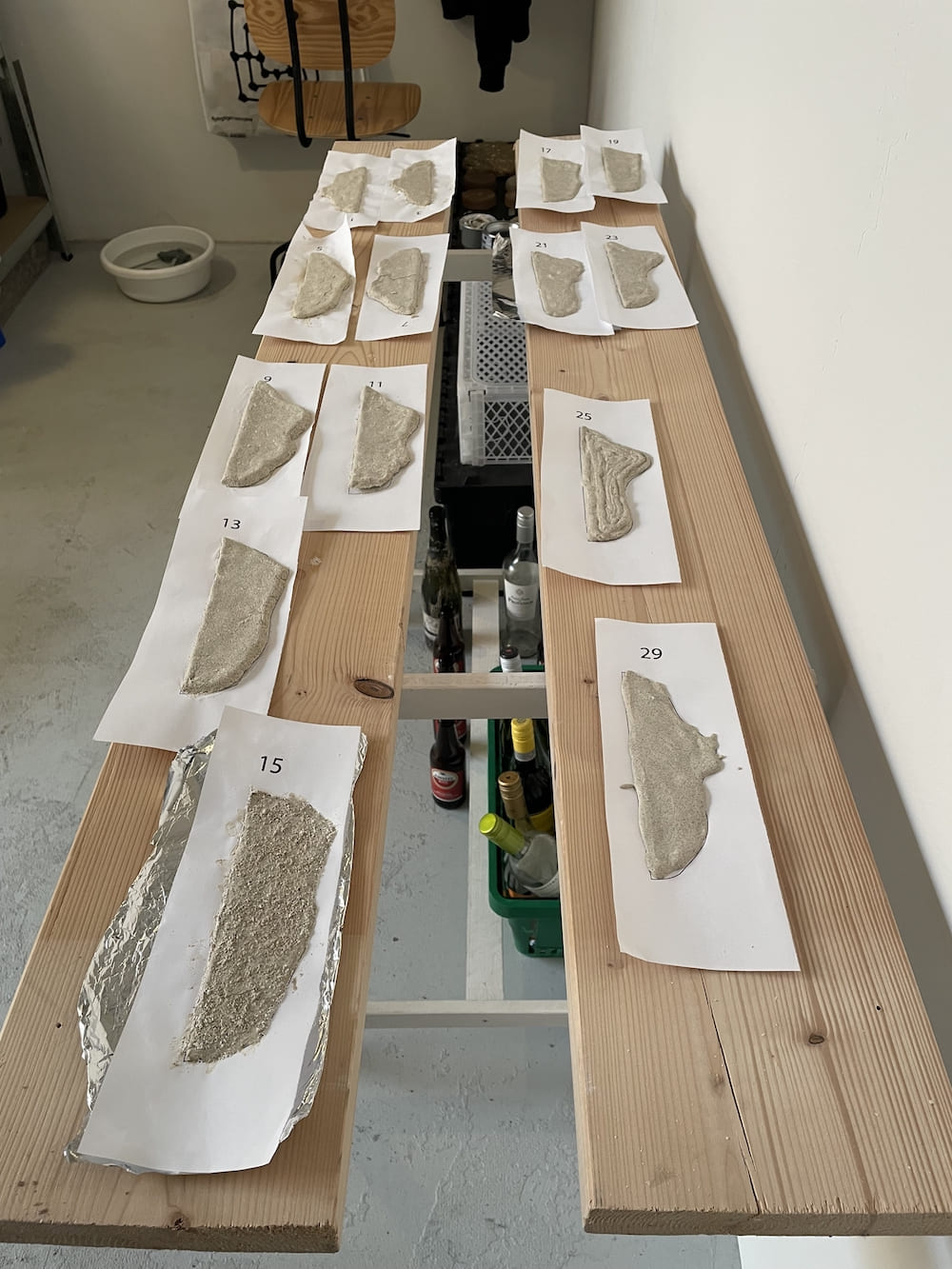
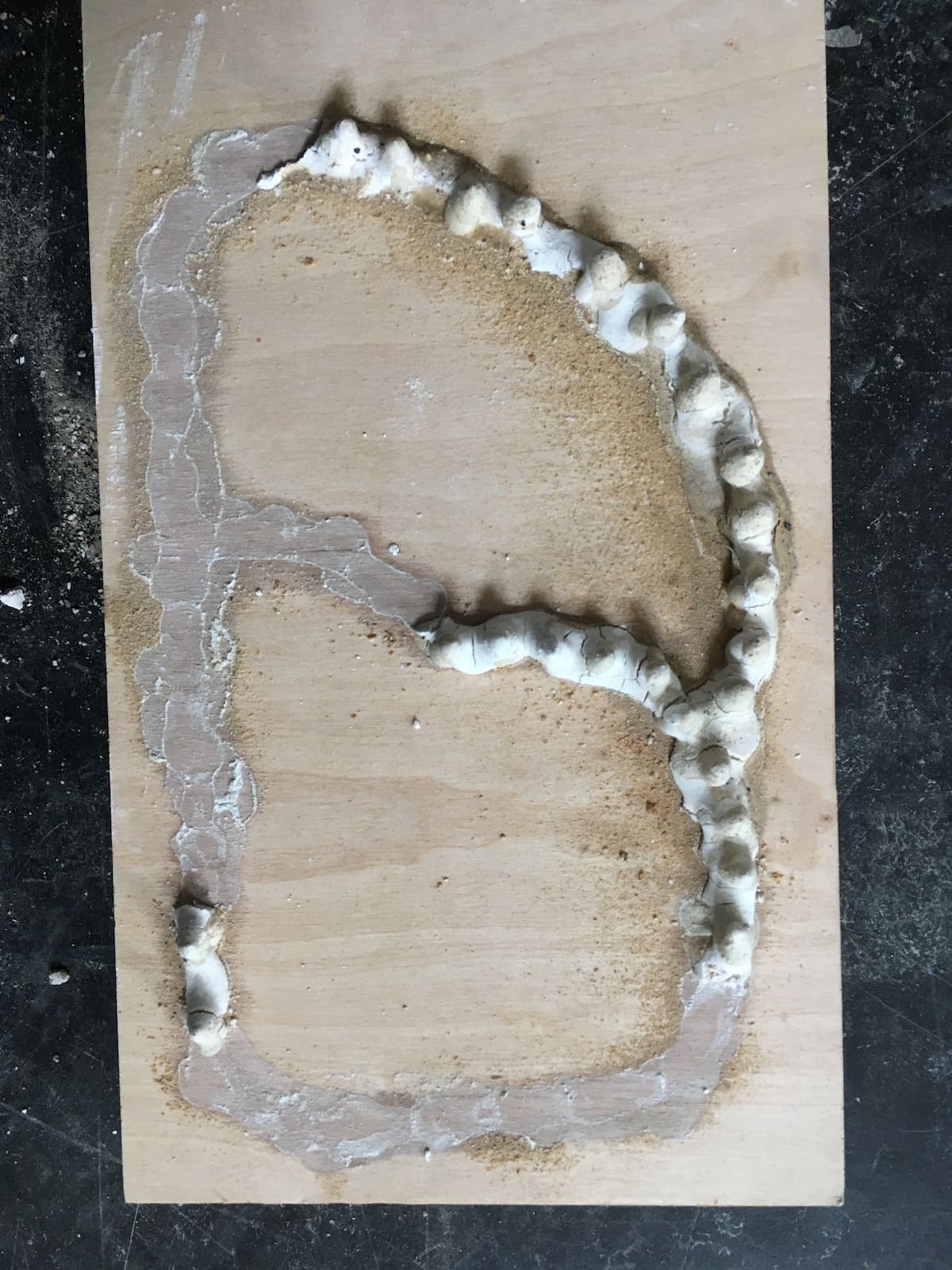
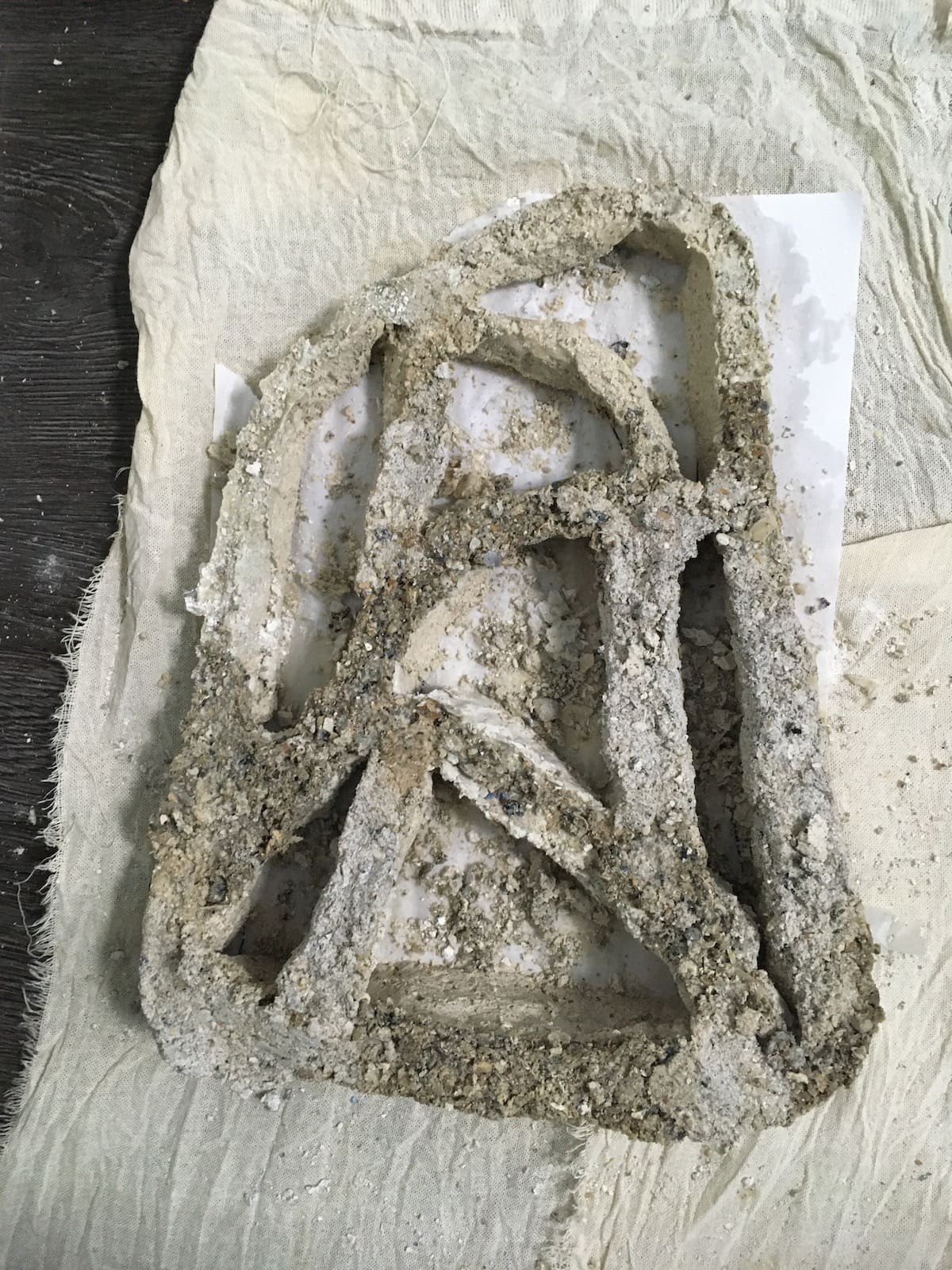
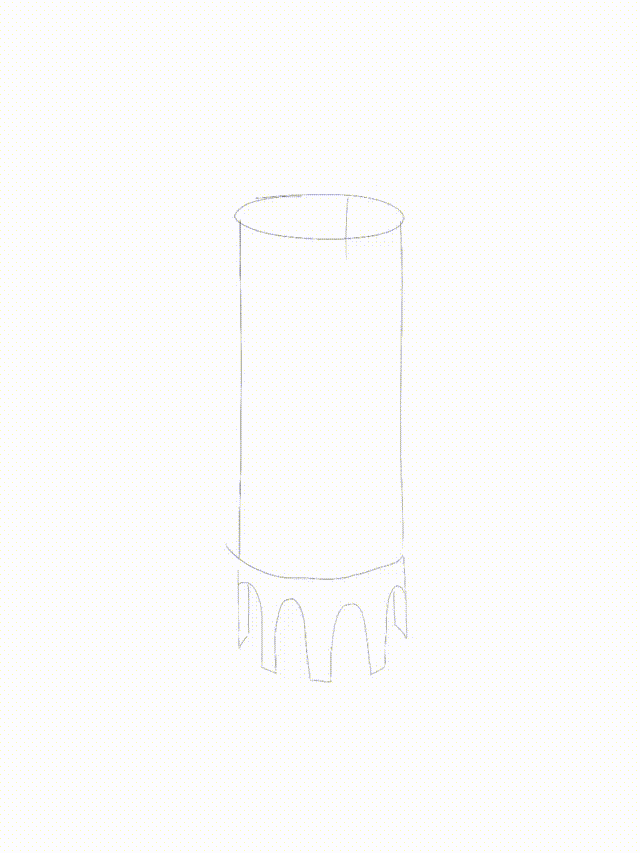
Further reading
Mineralloop
- New craft developed from Neostone
Biorock
- Experiments on electrolysis
Material District
- More properties info
Designboom
- Reintroducing limescale as a building material and envisioning neo stone age